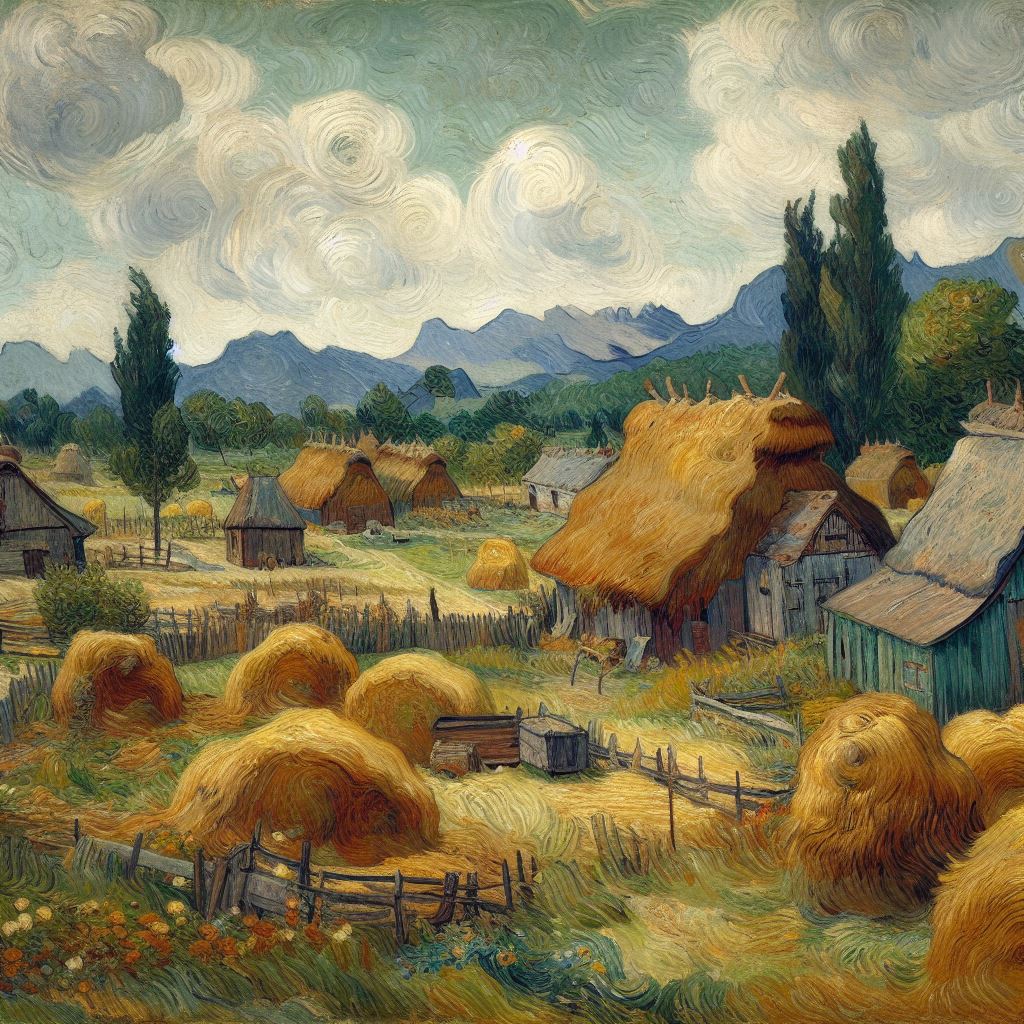War
So how’s the divorce going?
Btw, copper sponge is really good for such things. Hard enough for cooked-in stuff but soft enough to not scratch.
I find the scrub daddy brushes to be the perfect fit for cleaning my cast iron as well.
I only go to Reddit for two things: cast iron and pf2e. Slidey eggs never gets old
I only go to lemmy for two things. Tasty memes and to see people talk about Reddit.
And Linux
The linux people here are the worst. I’ve blocked all major linux communities but they still seep into other communities
And people moaning about people that like Linux.
And people informing me they use arch btw
I use mint btw
I use arch BTW!
And I’m all out of bubblegum.
Slidey eggs are highly represented in both categories
He’s dead
Hey everybody posting advice, go liven up this community!
https://lemmy.world/c/castiron
!castiron@lemmy.worldRelevent XKCD: https://xkcd.com/1905/
god damn i love relevant xkcds
Get out
coat that sucker with avocado oil and bring it up to 200°C for a few minutes. Allow it to cool, repeat until the sides don’t hold any oil, then switch to crisco solid shortening for a few rounds.
I love that everyone is showing up to give real advice to this post.
It’s the goal of the original picture, people can’t help but give cast iron advice.
The thing is, if you take care of it, the pan will outlive the owner. There’s just not many products with that kind of life these days.
What does the avocado oil base do? I’ve never seasoned a cast iron pan from scratch before.
In addition to what the other person said, olive oil has a high smoke point, meaning it has to get pretty darn hot before it creates smoke. It handles heat a lot better than other oils.
Did you mean to say avocado oil there? I love the stuff.
Shit yeah lol IM half awake
You can use various different food oils, the important part is that it can leave a (food safe) polymerized coat that binds to the surface, protecting it from rusting as well as making it non-stick
First of all a properly seasoned cast iron pan can and should be washed with modern dishwashing liquid. If the seasoning comes off with 'hand friendly ’ soap it was garbage seasoning anyway.
Second, this looks perfectly ready for seasoning. Nothing wrong with that. Just get the outdoor grill going grab some short chain oil and get to work.
Are you sure, I thought if a single molecule of soap touches my pan it would instantly look like this?
Nope. I often use dish soap and a soft scrub pad on my cast iron just like my Grandmother and mother did with those same cast iron pans and dutch oven. A decent seasoning on cast iron is probably more durable than non-stick coatings. Just keep it out of the dishwasher. The high temp hot water and caustic dishwasher detergents WILL damage your seasoning. But, then you just need to re-season to fix it all better again.
My lazy way to keep my cast iron and plain high carbon steel wok properly seasoned is to clean with hot water and mild dish soap then return to the stove top heat on high until hot, then shut the burner off and hit the insides with a light quick spray of cooking oil. Or I just use some plain vegetable oil and wipe on a thin coating with a paper towel. and leave it cool.
Nah this is more reduce a tomato sauce territory.
Modern dish soap is not acidic or a base so it’s quite harmless to the patina, but it’s also superfluous because you generally don’t want to degrease the thing which is the only thing that soap is good for. Boiling some plain water in it cleans off anything that you want to get rid off. If you’re terrified of bugs when not using soap for some reason get yourself a bonfire and heat your pan as hot as you want for as long as you want nothing will survive that. Just make sure to not melt it.
Short chain oil!? At first I thought you were bs’ing about seasoning a pan with gear oil.
That sent me down a novel rabbit hole. Thanks for your input!
I don’t get the joke. I just tried Google and it had nothing for seasoning cast iron with chain or gear oil. Is this a thing?
The chains being referred to here are molecular chains, not mechanical ones.
Thank you. That joke/wordplay went straight over my head.
Scrolled past this before reality set in after a few seconds
I’ve got one that I need someone to do this to so I can start over. It’s older than I am and was poorly taken care of for several years before I got it.
The cast iron I bought for myself is all in good condition. That one means a lot because of where it comes from but I don’t have the patience to scrape all that shit off. I wish someone would do it for me so I could enjoy the pan my grandaddy cooked me bacon in.
Just put it in the oven on cleaning mode if you have a self cleaning oven
My oven uses some weird “eco-friendly” self-cleaning process that involves pouring water into it and steaming the dirt off, which doesn’t sound like it would be good for the pan. Got any alternatives? I found a Griswold at the thrift store a few years back and I’d like to be able to restore it without damaging it.
Drill with an abrasive scubbing pad on it will sort it out real quick.
That really depends on the condition of the pan. I’ve had some where power tools were insufficient.
I have yet to see any kind of powered abrasive that WON"T get to the bare metal in a right quick manor. It’s kind of what the stuff is made for…
There’s a lot of answers here, but I don’t think anyone said the magic words. To reseason cast iron, you need an oil high in poly-unsaturated fatty acids. Those are the kind that can chain together, and form a good polymer coating.
The thing that trips me up most about this subject is that 140 years ago, pork fat was very good for seasoning cast iron. Today, it isn’t, because the composition of the fat has changed significantly.
The best seasoning coats will be thin, not appear or feel oily, give the pan a dark color slightly more glossy than an eggshell, and resist mild detergents, metal spatulas, and heat high enough to sear a steak on. If you have a layer of loose stuff in the pan, that’s just a layer of gunk, and is probably adding some weird flavors to anything you cook.
To reseason cast iron, you need an oil high in poly-unsaturated fatty acids.
In other words: Linseed.
Though I wouldn’t go so far as to say “need”. Linseed works much better, builds a nicer patina very quickly, but pretty much any fat works. In practice mine is getting seasoned with olive oil because that’s what I have standing around in the kitchen.
Proper technique is much more important in practice: First and foremost heat empty, then add oil and fry, then clean, ideally without degreasing (boiling water and a spatula do wonders), then (if necessary) add a drop of oil and try to rub it off with kitchen tissue, then put back on the stove to dry and maybe polymerise a little. Always have that thin layer of oil otherwise the pan is going to rust.
You can have a perfect patina, if you don’t heat up the pan before putting stuff in there things are still going to stick. You can have practically no patina, if you bring up just a single thin layer of any fat up to its smoke point and after that add oil (so the thing isn’t completely dry) things aren’t going to stick.
Linseed has an awfully low smoke point though, wouldn’t seasoning built with it burn off when trying to cook at higher temperatures?
A good patina will contain a good chunk of burnt oil, it’s not that the stuff vanishes when smoke gets produced linseed oil in fact produces very little smoke compared to say canola. Never getting to the smoke point of whatever you have on there will result in a non-black and not entirely unlikely also gooey patina.
It’s not a good idea to go miles beyond the smoke point but hovering around it is pretty much optimal. You use oils with higher smoke points if you want a more aggressive sear without ruining the taste of whatever it is you’re searing, the thin layer you smoke off when heating the pan, or that smokes off while the pan is cooling off quickly after adding oil+ingredients, is generally so miniscule that it doesn’t really affect taste short of giving some wok hei which is generally a good thing. If the smoke alarm goes off or you need to open a window you’re overdoing it.
Be careful with linseed oil as it spontaneously combusts! My friend used it on something and left the rag in the garage, and it literally burnt their house down.
Not an issue once on the pan: Linseed oil oxidises quite quickly when exposed to air which is where the heat is coming from and it’s certainly exposed to air on a pan, however, the pan is also an excellent heatsink and not flammable. Rags are a combination of even more exposure to oxygen (because the oil soaks into fibres and then has lots of surface area) combined with the rag being flammable, those are very specific circumstances. Bottles of the stuff also don’t spontaneously combust in the fridge, they only spoil within a week or so (for culinary use, that is, it’s still perfectly fine to season pans with it, and is still food-safe. Just starts to taste like ass quite quickly but that doesn’t matter when you burn the stuff anyway)
But yes I should probably have mentioned that I flush my kitchen tissues when working with linseed oil.
The thing that trips me up most about this subject is that 140 years ago, pork fat was very good for seasoning cast iron. Today, it isn’t, because the composition of the fat has changed significantly.
That sounds very interesting! Is it because of the way pigs are raised now compared to back then? They eat way fewer babies now, I bet.
I don’t know what causes the difference, I just compared the first nutrition breakdown of rendered pork fat I could find to a recent USDA publication. I’m under the impression that we mostly grow different breeds of pork, on bigger farms, using a more consistent food blend, so pretty much everything has changed in that time.
Don’t know of the given info about the pans is correct. But animals nowadays are defintly way more “optimized” than they used to be. Both genetically and the stuff they eat.
What changed about pork fat?
i would also like to know
You mean “ex-wife”…😵
I bet she was so grateful. It takes a ton of scrubbing.













